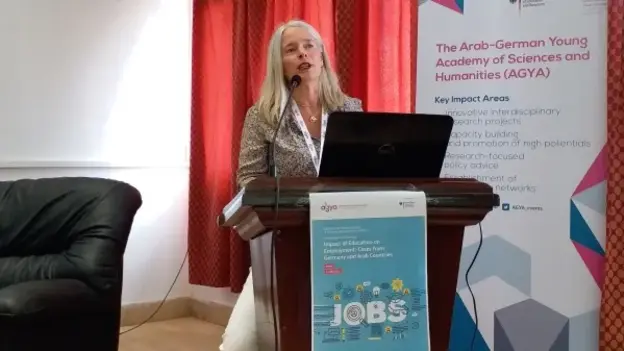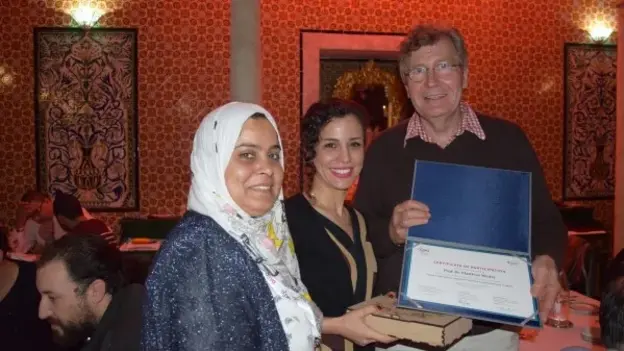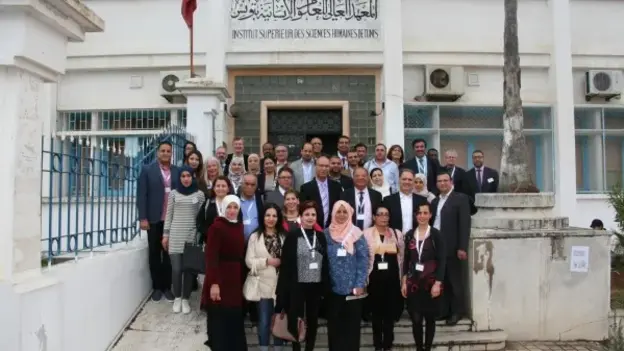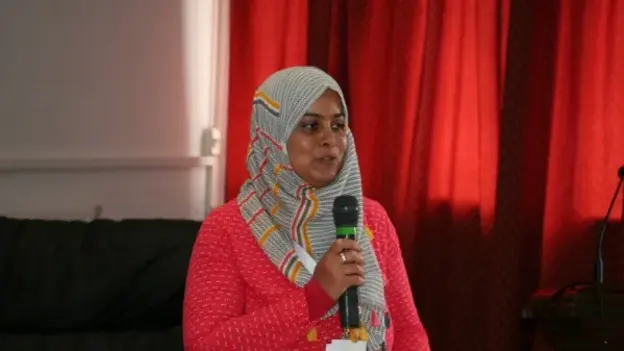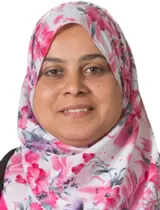Working Group Meeting
Impact of Education on Employment
Conference
Employment remains a great challenge for Tunisia, especially for youth and women as well as interior regions of the country. According to the World Bank, unemployment has declined from its peak of 19 percent (2011), right after the revolution, to 15.5 percent in 2017. However, the rate rests above pre-Revolution levels (13 percent in 2010). How does education affect employment rates? And how can unemployment among graduates be decreased? These and other questions were discussed at the International AGYA Conference on 'Impact of Education on Employment: Cases from Germany and Arab Countries' in Tunis in the beginning of May in 2018.
75 Participants from more than 10 countries
Gathering more than 75 participants, AGYA members and the invited international distinguished speakers discussed lessons learnt from Germany and Arab countries for the education system and its impact on employment and how the collaboration between the different organizations can help to solve the problems that graduated youth are facing – with a special focus on Tunisia. The conference was held from 02 May to 04 May 2018 at the Higher Institute of Human Sciences of Tunis (ISSHT) at the University of Tunis El Manar.
Across the eight panels of the conference, the participants from more than 10 countries including scholars, decision makers, stakeholders from universities, companies and ministries were able to deepen their knowledge and to exchange about:
- The challenges and the expectations in academia and industry collaboration
- The relationship between education and employment
- The collaboration between Arab countries and Germany for graduates’ exchange
- How does education affect employment rates?
- Scientific research promotion and impact on employment
- Academics in STEM and employment opportunities
- Social change and the relationships between education and employment
- Effective education for employment: A Global Perspective
- Effective education for employment: Enabling environments
A platform for knowledge exchange
The conference addressed the above-mentioned topics by providing a platform for knowledge exchange between the involved German stakeholders and Arab experts. It aimed at raising awareness among the stakeholders about the necessity of reform at the level of tertiary education as well as in other sectors in order to decrease high rates of youth unemployment, especially unemployment among graduates. ‘Although academic education is empowering students to start their future careers smoothly, enhancing the capacity of farmers is also vital and has a great impact on increasing the productivity of their farms, and hence reducing poverty among rural communities’, testified Mr. Ghazi Jawad Al Jabri, Capacity Building Specialist at the International Center for Biosaline Agriculture (ICBA), Dubai, United Arab Emirates.
During the conference, the participants also had the chance to visit the StartUp Haus Tunis, a German-Arab project that is implemented by enpact in cooperation with the Westerwelle Foundation. The StartUp Haus Tunis is a best practice example of an Arab-German collaboration with the aim to foster an entrepreneurial spirit and culture where a strong community can exchange ideas and promote peer-to-peer learning.
AGYA member Henda Mahmoudi, who organized the conference together with her fellow colleagues from the AGYA Working Group Arab and German Education summarizes: ‘Since 2016, the working group continuously engages in discussions of challenges and prospects of the education system in Tunisia. In October 2018, AGYA members will participate in a conference on ‘Transfers of Innovative Pedagogical Practices in Science Education’ organized by the renowned ‘Tunisian Academy of Sciences, Letters and Arts Beit al-Hikma', where participants from different countries and different Arab countries will gather. We are convinced that this Arab-Arab-German collaboration creates significant added value as it builds bridges across disciplines and countries and fosters innovation on a long-term level.’
From the conference’s eight panel discussions and final ‘Expert Forum Discussion’, nine recommendations were formulated. they were published in the AGYA publication 'Higher Education in Tunisia: Challenges and Opportunities'.
- Disciplines Involved
- Biology, Literature, Cultural Studies
- Cooperation Partner
- Higher Institute of Human Sciences of Tunis (ISSHT), University of Tunis El-Manar, Tunisia
- Project Title
- International AGYA Conference ‘Impact of Education on Employment: Cases from Germany and Arab Countries’
- Year
- 2018
- Funding Scheme
- Working Group Meeting
- Working Group
- Arab and German Education
- Countries Involved
- Tunisia, Germany
- AGYA Publication
- Higher Education in Tunisia: Challenges and Opportunities
